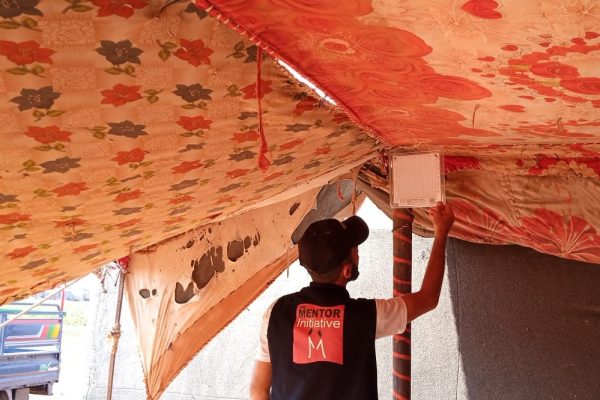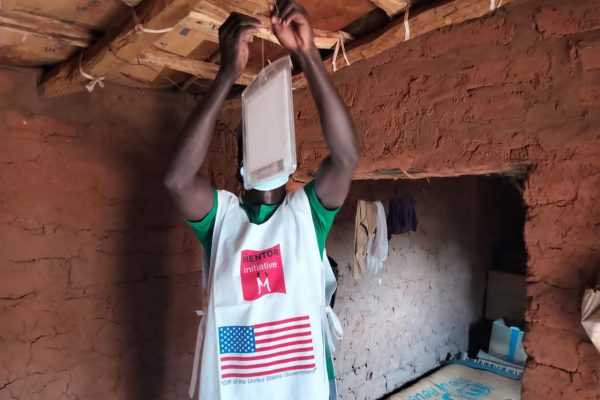Spatial repellents are an innovative class of vector control tool that have been tested and implemented at scale to provide protection against most common vector-borne diseases.
Spatial repellents emit airborne active ingredients such as Transfluthrin which impact vectors behaviour and reduce human-vector contact. They are easy to install and protect people during the day and night in any type of shelter. Other benefits include they are small and lightweight so easy to transport and distribute, can be stored for long periods, and are inexpensive to manufacture.
Such characteristics are essential in humanitarian contexts where traditional tools may not be adequate to the shelter conditions in vulnerable settings.
MENTOR has partnered with SC Johnson to carry out trials of spatial repellents in various settings such as Syria, Yemen and Nigeria, demonstrating the tools efficacy on leishmaniasis vectors in Syria, and dengue vectors in Yemen.
The studies also determined the communities’ perception of the tools, showcasing a good understanding, ownership, likeness and use of spatial repellents.
A third trial took conducted in Internally Displaced Person (IDP) camps in Maiduguri, northern Nigeria also point out similar outcomes for malaria vectors. The trial also showcases reduced incidence in intervention clusters, pointing out the usefulness of spatial repellents in humanitarian contexts.
Programmes to distribute spatial repellents at a mass scale began in Syria and Gaza in early 2025. The programme in Syria will also cover the integration of Guardian™ and Shield™ spatial repellents into the local market system, after a thorough baseline market study is carried out.
MENTOR has been advocating for new tools for vector control adjusted to humanitarian contexts. Spatial Repellents seem to bring new possibilities for disease control in these contexts and is showing to be a promising tool to be included in the toolbox. MENTOR is using these tools in contexts deemed adequate to ensure maximum impact of its interventions.



